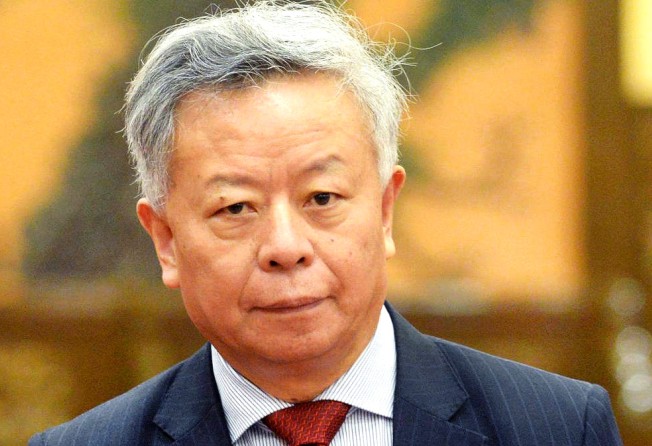China nominates Jin Liqun for AIIB chief role
Bank's interim head is named as Beijing's presidential candidate, as other regional members are invited to put forward their own contenders

China has officially nominated former finance vice-minister Jin Liqun to be the first president of the Asian Infrastructure Investment Bank.
Jin, who currently heads a panel setting up the Beijing-led bank, has been tipped as the top presidential candidate, as China is by far the largest shareholder of the US$100-billion institution and holds effective veto power over key decisions, including the election of its president.
The finance ministry made public the nomination in an online statement on Monday.
All regional members of the new bank are eligible to nominate their own presidential candidate by the end of the month, according to the statement.
The nominations will be finalised at a meeting of top negotiators late next month, and the election will be held once the bank starts operating.
The AIIB president's term of office will span five years, and a president can be re-elected once, according to the bank's Articles of Agreement.
Since Beijing's candidate is seen as strong, he has a good chance of winning, Michael Clauss, German ambassador to China, told the South China Morning Post.
"There is a tradition [in multilateral institutions] that, if the biggest shareholder has a convincing candidate, usually that candidate gets elected," he said.
China will put US$29.78 billion into the bank, giving it a 30.34per cent stake and 26.06 per cent of voting rights, according to the bank's Articles of Agreement. Key decisions need 75 per cent of votes to pass.
Other major regional shareholders, including India, Russia, Korea and Australia, have yet to show any interest in competing for the post.
Indonesia, the sixth-largest regional shareholder, is unlikely to run for presidency of the bank, Indonesian finance minister Bambang Brodjonegoro told the Post last month.
Mohan Guruswamy, chairman of the Centre for Policy Alternatives, the India-based think-tank, said India would not be in competition with China on presidency, given that it only holds over 8 per cent of the bank and that India already heads the BRICS Development Bank.
"As its largest and dominant shareholder, and as a potentially largest source of funds by way of subscription of bonds, China has the first and rightful claim for the post of president," said Guruswamy, who was also the adviser to India's former Finance Ministry. "I dont believe this will be an issue with India and do not think it will contest."
Peking University professor Wang Yong, who is also a consultant for the Asian Development Bank, said the presidential election would be competitive to an extent, but that he believed Jin was the "best candidate" for the AIIB's first head.
"The bank needs a president who has clear understanding of the interests of different members to push forward negotiations among them," he said.
Jin was more experienced and knowledgeable in that sense, as, in his role as the secretary general of the bank's multilateral interim secretariat, he had been dealing with other top negotiators for more than half a year, Wang said.
"He also had plenty of opportunities to get the negotiators familiar with his managing style," the professor added.
Jin, 66, was chairman of China International Capital Corporation, one of the mainland's largest investment banks, before he joined the AIIB late last year.
He has also served as China's representative in other major multilateral lenders including ADB and the World Bank.
Jin joined the finance ministry in 1980 and became its vice-minister about 20 years later. As finance vice-minister, he managed the budget for government organisations and oversaw fund-raising from both domestic and international capital markets.
He holds a master's degree in English Literature from the Beijing Foreign Studies University and was a Hubert Humphrey Fellow in Boston University's economics graduate programme.